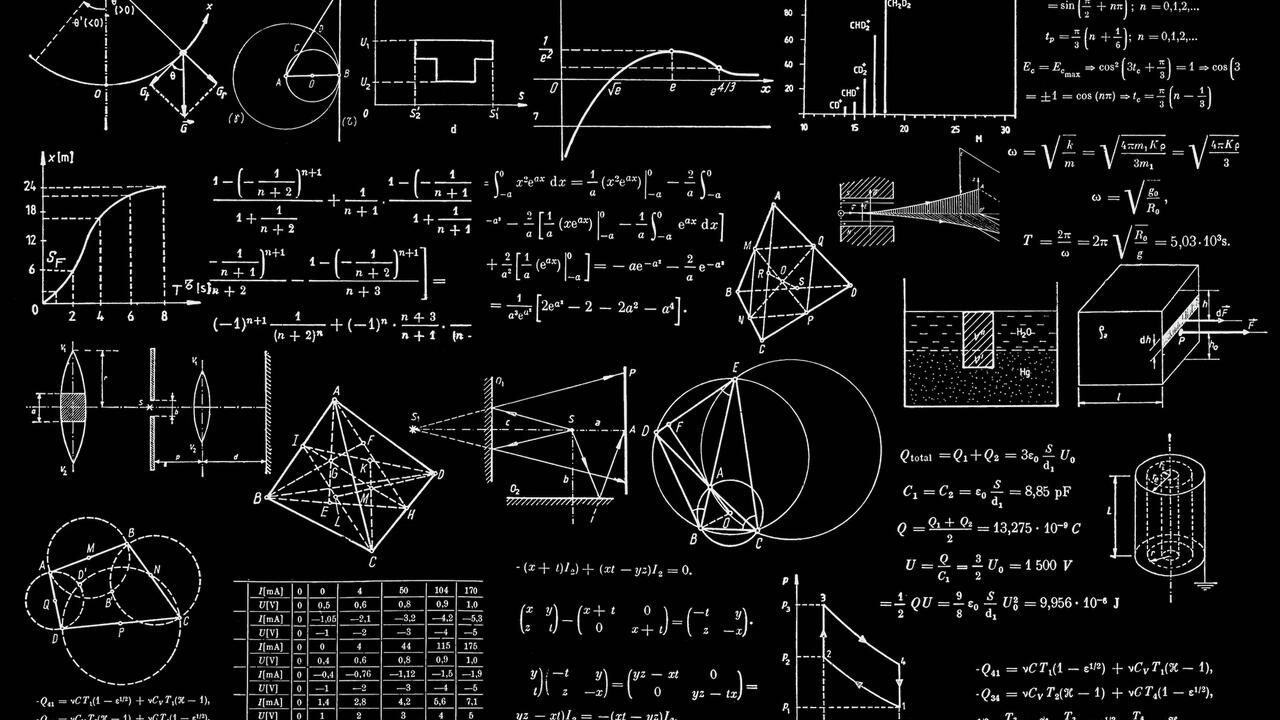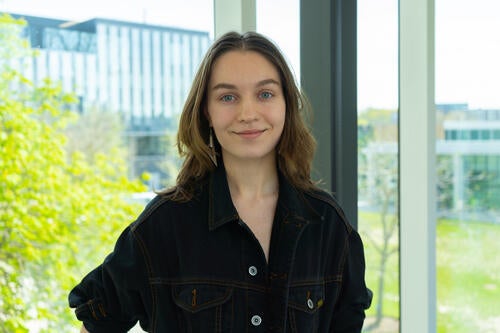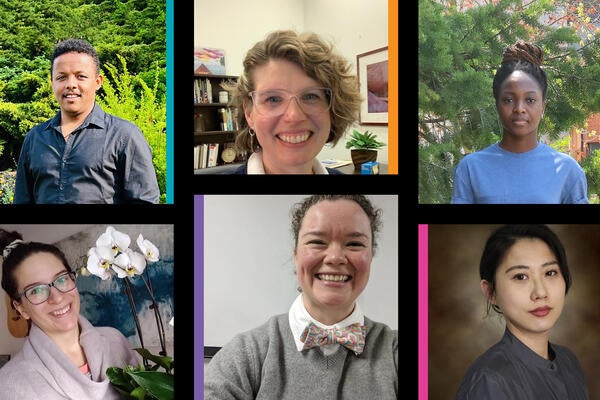
Light in dark rooms
Faculty of Mathematics graduate Maria Esipova reflects on her journey at Waterloo and sets her eyes on an academic career in algebraic combinatorics

Faculty of Mathematics graduate Maria Esipova reflects on her journey at Waterloo and sets her eyes on an academic career in algebraic combinatorics
By Melodie Roschman Faculty of MathematicsMaria Esipova’s academic journey has been one of continuous discovery.
Esipova graduates from the University of Waterloo this October with an Honours degree in Mathematics, double majoring in Pure Math and Combinatorics and Optimization.

Esipova always excelled in math, both in Russia, where she was born, and in Toronto, where she grew up. But she didn’t realize it was possible to turn that passion into a career until she was in Grade 12.
Esipova spent high school in the MaCS program at the William Lyon Mackenzie Collegiate Institute — an English, math, science, and technology enrichment program for advanced students. She also participated in international math contests from the Centre for Education in Mathematics and Computing (CEMC) at Waterloo. But everything clicked when a friend of hers handed her a brochure for Waterloo’s Faculty of Mathematics.
“I wasn’t really aware that math research and teaching could be a career,” she says. “From then on, I was set on Waterloo.”
Because of the MaCS program, Esipova was able to immediately enroll in advanced mathematics classes when she arrived. “In high school, we did the first semester of Calc II,” she explains, “so I felt like — ‘oh, this is going to be a breeze. I’m so prepared for it.’” She laughs. “I was not. They threw us into the deep end.”
It was at Waterloo that Esipova first encountered “discovery-based learning” in one algebra class she took from Dr. David Jao, a professor of combinatorics and optimization. “He had us study things ourselves and then gave us lectures about them after,” she recounts.
She felt like she was encountering math again for the first time. “I had no idea what was going on, but I pushed through,” she says. “After a few weeks it clicked, and I realized that the fundamental way we were talking about math had changed.”
By the end of her first year, Esipova was adjusting to this new way of thinking about math and was receiving encouragement from her peers and professors to go to graduate school and pursue an academic career in mathematics.
The most important preparation for that career happened outside the classroom. During her time at Waterloo, Esipova completed two Undergraduate Research Assistantships (URA). The first, in spring term 2021 with Dr. Karen Yeats, professor of combinatorics and optimization, led to her co-authoring a paper for the Canadian Mathematical Bulletin. It also contributed to her winning a Jessie W. H. Zou Memorial Award (2023), in recognition of her exceptional research.
During her research assistantships, Esipova discovered the specialization that she is now pursuing in a master’s in math program at the University of British Columbia: algebraic combinatorics. Esipova loves algebraic combinatorics because it encourages her to “bring in tools from other disciplines” and “solve problems that were hard to solve in their original setting.”
As she reflects on what she’s discovered at Waterloo, and the discoveries ahead of her, she returns often to the words of mathematician Andrew Wiles.
Math, Wiles says, is like exploring a dark mansion. “You go into the first room and it’s dark, completely dark. You stumble around, bumping into the furniture. Gradually, you learn where each piece of furniture is. And finally, after six months or so, you find the light switch and turn it on. Suddenly, it’s all illuminated, and you can see exactly where you were. Then, you enter the next dark room.”

Read more
Professor David McKinnon shares his perspective on the beauty, purpose and fun of pure mathematics

Laura Bumbulis swims laps in the PAC pool.
Read more
Faculty of Mathematics graduate on overcoming adversity in the classroom and the pool

Read more
Waterloo recognizes six PhD students for earning the highest academic status within their faculty and their innovative research
The University of Waterloo acknowledges that much of our work takes place on the traditional territory of the Neutral, Anishinaabeg and Haudenosaunee peoples. Our main campus is situated on the Haldimand Tract, the land granted to the Six Nations that includes six miles on each side of the Grand River. Our active work toward reconciliation takes place across our campuses through research, learning, teaching, and community building, and is co-ordinated within the Office of Indigenous Relations.